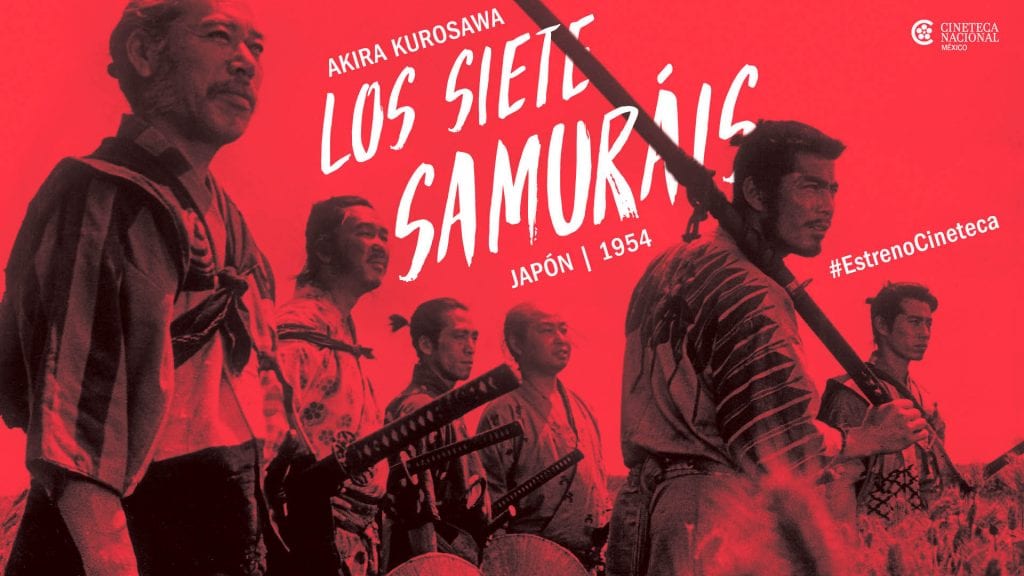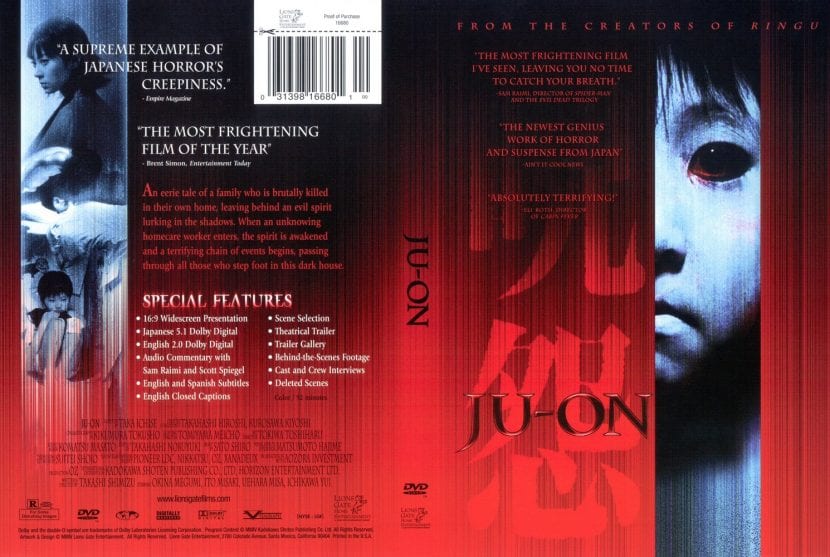
Japan owns one of the more proliferating film industries, successful and reputed in the world. In addition to being one of the most influential on cinema produced in the West, mainly Hollywood. There are Japanese films that have marked milestones in the cinema.
Japanese filmmakers they have walked through all the traditional genres (comedy, horror, suspense, action, animation), and they have created their own themes and styles. They have even made a notable contribution to essentially "American" films, such as those of the western genre.
Japan is the father of one of the only two 100% cinematic monsters, with no literary references of any kind: Godzilla (originally Gojira). This has also given rise to the films of the Kaiju genre.
At an artistic or cult film level, several of its most iconic filmmakers are admired around the worldBeing Akira Kurosawa the most iconic.
Many international Box Office hits from the last decades produced in Hollywood, they are remakes of japanese movies.
The Japanese films that marked time and style
The seven samurai. Akira Kurosawa, 1954
The filmography of the prolific director born in Shinagawa requires an exclusive article to be able to admire all that he bequeathed to the history of the Seventh Art and humanity. It is difficult to qualify any of his works as "the most important of his career". The seven samurai It is undoubtedly one of the most outstanding.
The premise of the story is simple: a group of peasants, in XNUMXth century Japan, tired of living under the terror of a horde of bandits, decide hire a group of samurai to defend them.
Voted several times by directors around the world as one of the 10 best films of all time, winner of the Silver Lion at the Venice Film Festival and two Oscar nominations. Its American version is also famous The seven magnificents, western directed by John Sturges and starring, among others, Steve McQuenn, Charles Bronson and James Coburn.
The circle. Hideo Nakata, 1998
One of the scariest movies of all time. And it is that the supernatural and more "hardcore" terror have a wide space within the Japanese film culture.
Also known as "the movie of the cursed video." Whoever sees the aforementioned tape will inevitably die a week later, not without first suffering all kinds of demonic calamities.
In 2002 Hollywood released its remake (titled in Spain as The signal). Gore Verbinsky (Pirates of the Caribbean) was the director.
El viaje de Chihiro. Hayao Miyazaki, 2001

Anime cinema is another popular genre within the filmography of the country of the Rising Sun. The stories developed under the traditional Japanese animation method are also very varied.
A fantastic story, starring a little girl who experiences a series of extraordinary events, for the purpose of rescuing his parents.
Oscar for Best Animated Film, winner of the Silver Bear at the Berlin Film Festival and many other recognitions. Similarly, it is one of the highest grossing Japanese films of all time, with a collection close to 230 million dollars globally.
The empire of the senses. Nagisa Oshima, 1976
One of the most controversial and controversial films of universal filmography. Study subject in film schools of various universities around the world.
For some, a work of art. For others, a very vulgar pornographic film.
Based on a true event that occurred in Tokyo during the 30s. A retired prostitute becomes the mistress of her new boss, the owner of a hotel where he works as part of the easement. The couple will push their relentless and bizarre sexual desires to unsuspected limits.
In official film records it appears as a Franco-Japanese co-production. However, although the final editing process was carried out in France, the “co-production” agreement between producers from France and Japan it was just a strategy to circumvent the strict censorship of the Asian archipelago.
Godzilla. Ishiro Honda, 1954
Titled in Spain as Japan under the terror of the monster. The cinema would not be what it is today, without this film.
As a consequence of the atomic bombs dropped on Japan, Godzilla, an old monster that was sleeping at the bottom of the sea is awakened. Terror takes over the entire population. After arduous battles and much destruction, the giant grotesque is defeated. But everyone has the doubt that this was the only "Gojira" of its kind that survived from pre-history.
Ju on. Takashi-Shimizu, 2000

Unsuspected cultural phenomenon for its producers. Low budget horror movies that went straight to home video formats.
Based on the Japanese versions of the traditional urban legends of haunted houses. Story divided into six chapters, whose starting point is located in a heinous murder perpetrated by a man against his wife and son.
Following the initial success, it was filmed a second part that was released in theaters. More than a sequel, it functioned as a recap of the original story, to introduce it to a wider audience.
In 2004, Shimizu himself moved to the United States to film the Hollywood version of his story, titled The Grudge (The Scream, in Spain). From this remake one of the most repeated phrases of recent years is extracted: “It never forgives. It never forgets ”. (He never forgets. He never forgives).
Tokyo Tales. Yasuro Ozu, 1953
La creative influence between Hollywood machinery and Japanese cinema it is bi-directional.
Portrays as generational leaps and the modern pace of life have opened insurmountable gaps between parents and children, unable to communicate with each other.
The sand woman. Hiroshi Teshigahara, 1964
Within the vast Japanese filmography there are space for experimental or avant-garde cinema. The introspection and debates that have always plagued humanity.
Based on the novel by Kobo Abe (also known as The Woman of the Dunes). An extreme love story, where the wishes of survival and freedom are sometimes in conflict, other times they are subject to conformity and resignation.
Enjoy universal admiration. Winner of the Special Jury Prize at the Cannes Film Festival. It garnered two Oscar nominations for Best Foreign Language Film and Best Director.
Image sources: Escenarios / Vice Magazine